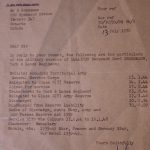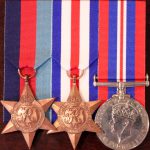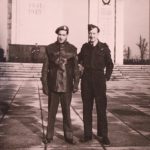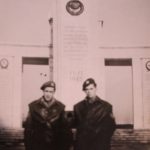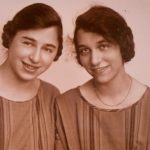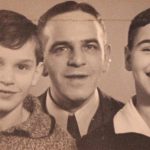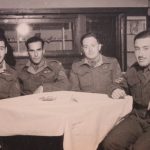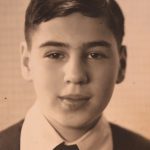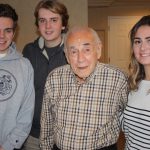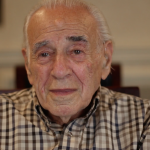Gerry Grossmann was born May 8, 1925 in Dusseldorf, Germany, into a prosperous Jewish family. Gerry remembers his childhood in fond terms, as his parents created a home where he and his brother had so many opportunities. 1933 saw a dramatic change though; with the election of Hitler, things changed for the Grossmanns and for all German Jews. With each succeeding year, more and more was taken away, and with Kristallnacht, Gerry’s parents sensed what was on the way, and they made arrangements to have their young sons evacuated on the Kindertransport to Britain. Gerry and his brother arrived in England, where they registered as “enemy aliens” and started over with English families. School soon gave way to war work, as the now teenaged Gerry made his contribution to the war effort. When he was old enough, he enlisted in the British army, where he spent time training in Scotland before being sent across the Channel to France. There Gerry saw combat, as he fought to liberate his onetime homeland from Nazi oppression. Gerry was in the Battle of the Bulge, and as the Allies resumed their push into Germany in the spring of 1945, Gerry was wounded and sidelined from the action for a time. In the period after VE Day, Gerry learned the fate of his parents, both of whom were murdered in the Shoah, and the army capitalized on Gerry’s language skills, as he became a translator/interpreter, going through the Nazis’ documentation and interviewing officers, and playing his role in creating a new standard of justice at Nuremberg.
We met Gerry thanks to Historica Dominion, and Crestwood alumna Savannah Yutman and Grade 12 students Rory Peckham and Malcolm Leask interviewed him at his home in December 2017. Scott Masters revisited Gerry at his home in November 2019.
Videos
Click next video below to keep watching
